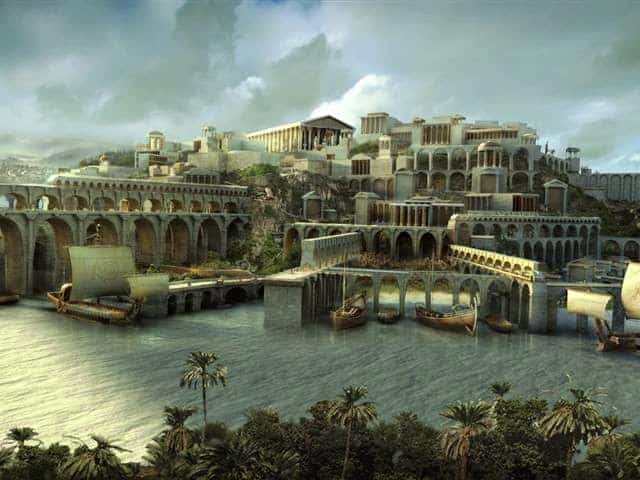Professor Indiana Jones made archaeology a cool, nonstop barrel of action on screen. In real life, archaeological discoveries are seldom dramatic. They’re still quite important, as they expand and shed new light on our knowledge of the past, and allow us to separate historic facts from myths and legends. Following are thirty things about some of history’s more fascinating archaeological facts.

ADVERTISEMENT - CONTINUE READING BELOW
30. Plato’s Atlantis Wasn’t That Nice
The legend of Atlantis began circa 360 BC, when Plato wrote about a utopian, advanced, and dramatically lost country that vanished beneath the waves, in his Timaeus and Critias dialogues. In popular culture nowadays, Atlantis is presented as a peaceful and wise country, an idealized model of what humanity could be. That was not Plato’s Atlantis, though. He wrote about a rich, technologically advanced, and militarily powerful country that was corrupted by its power. It tried to conquer the world, and the good guys in Plato’s narrative were not the good people of Atlantis, but Athens and her allies, who fought back. If Plato’s Atlantis existed today, it would probably try to conquer and enslave us all.
That Atlantis, eventually sunk by the gods as punishment for its people’s hubris and moral decline, was entirely fictional – a plot device to advance some philosophical points. Centuries later, many people began to believe that Atlantis was real, and tried to prove its existence. The legend’s revival in the modern era and its transformation into popular pseudoscience can be traced back to a nineteenth-century amateur historian and Congressman, Ignatius Donnelly. He wrote an 1882 book, The Antedeluvian World, in which he added new “facts” that became part of the Atlantis myth. He also theorized that all major human advances can be traced back to Plato’s sunken island. Is there any archaeological evidence, though, that Atlantis ever existed?

